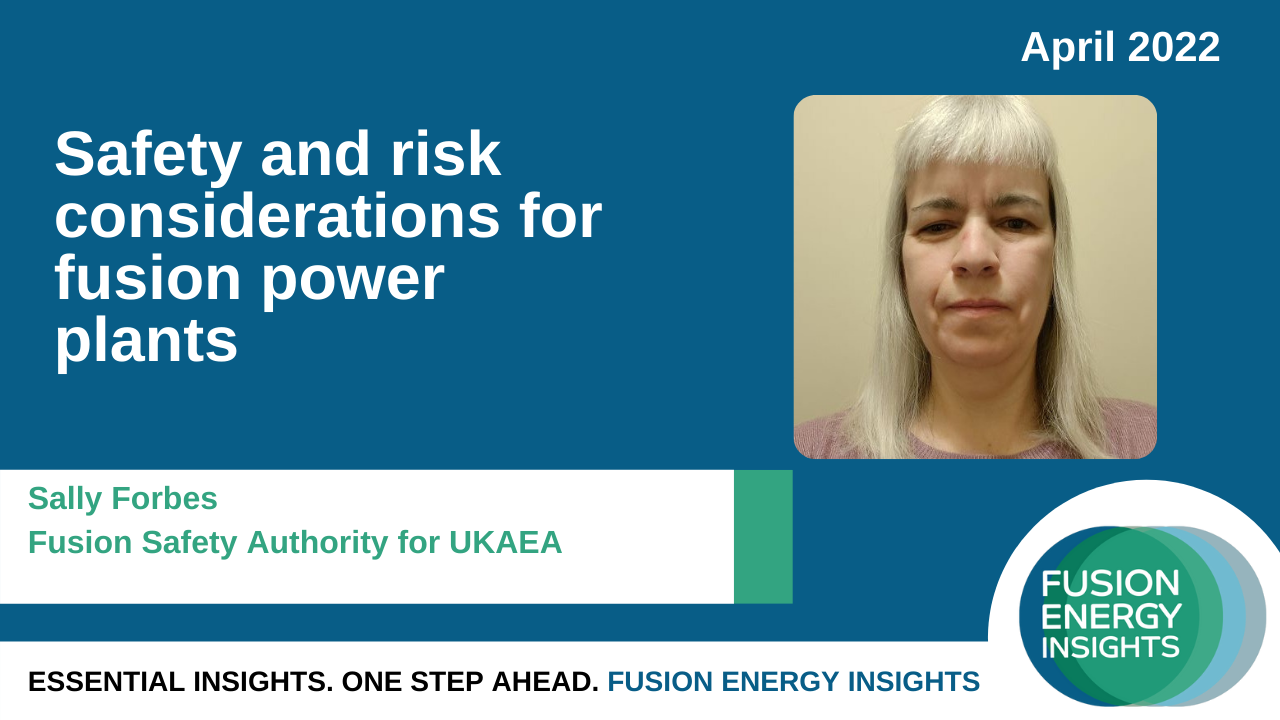Safety and Risk Considerations for Fusion Power Plants
Our April Insights Q&A event was with Dr Sally Forbes, Fusion Safety Authority at the United Kingdom Atomic Energy Authority (UKAEA).

Here are three key insights from the event:
1. Governments now are increasingly thinking about how to regulate the new fusion industry.
Historically, fusion devices have been experimental machines and so have been regulated as such, however future fusion power plants will need to be regulated differently.
Fusion power plants will have:
- increased inventory of tritium
- increased activation of materials
- increased radioactive waste
So we need to think about regulation for fusion in these early stages of industry development, particularly about what is proportionate and appropriate—a good regulatory framework needs to be proportionate to the hazard.
The Fusion Safety Authority at UKAEA is working with the International Atomic Energy Agency (IAEA) to develop a TECDOC on international Fusion Power Plant Regulation.
2. Published safety studies show that a worst-case scenario accident would not have significant impact on the public.
This conclusion comes from a Technology Report into safety and waste aspects of fusion power plants, put together by Sally and team at UKAEA and based on published studies for early concept designs.
These studies have shown that even for extreme hypothetical events, potential effects to the public will be much less than the hazards from the worst-case accidents from a fission power plant (e.g Fukushima, Chernobyl).
This risk analysis allows for a proportionate regulatory framework for the significantly reduced hazards for fusion power plants to be created.
The subsequent UK government report on fusion energy regulation, “Towards Fusion Energy” recommends a non-fission approach, with an evolution of the current regulatory approach which is based on accelerators. (See update below for confirmation of plans.)
3. A proportionate framework is so important.
Blindly going worldwide into full nuclear regulation, as has been done for ITER, would be a mistake that could potentially damage the industry. We need get away from the nuclear mindset and assess fusion hazards independently.
If the regulatory framework doesn’t take into account the level of hazard then we will end up over-engineering, which will cost more and make the process longer. We need to make fusion happen safely but also on a reasonable timescale, which is why a proportionate framework is so important.
Sally Forbes: “I think we all believe in fusion to help the energy crisis. And we have to make it happen safely. But we have to make it happen in a timeframe that's appropriate to it.”
A full pdf summary of key insights, plus the Q&A event replay, is available to Game Changer members of Fusion Energy Insights. Join us now for full access to all the insights.
UPDATE: In June 2022, following a public consultation, the UK government confirmed that fusion would be regulated by the Environment Agency and the Health & Safety Executive, rather than under nuclear regulations which would be "disproportionate and unnecessary". You can read the government response: Towards Fusion Energy.
